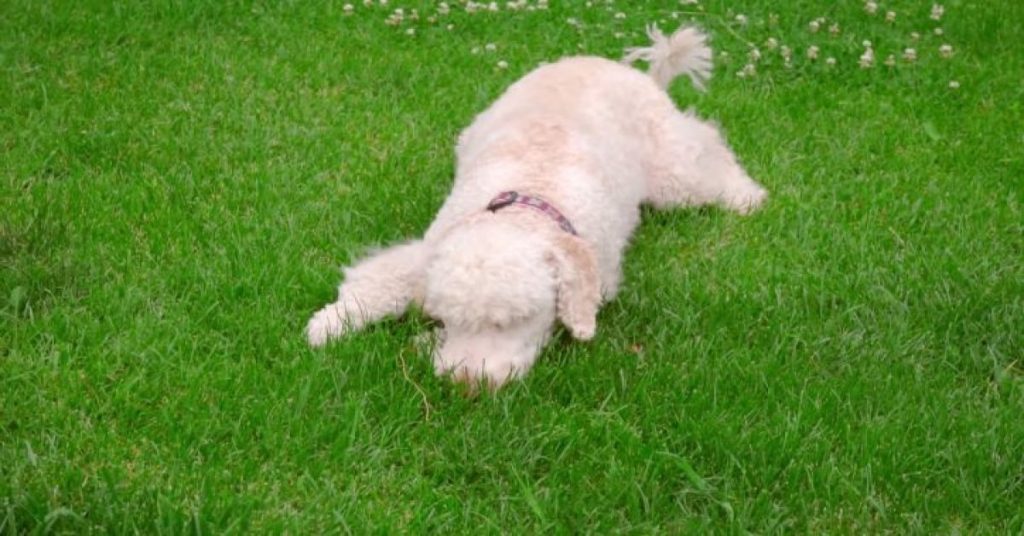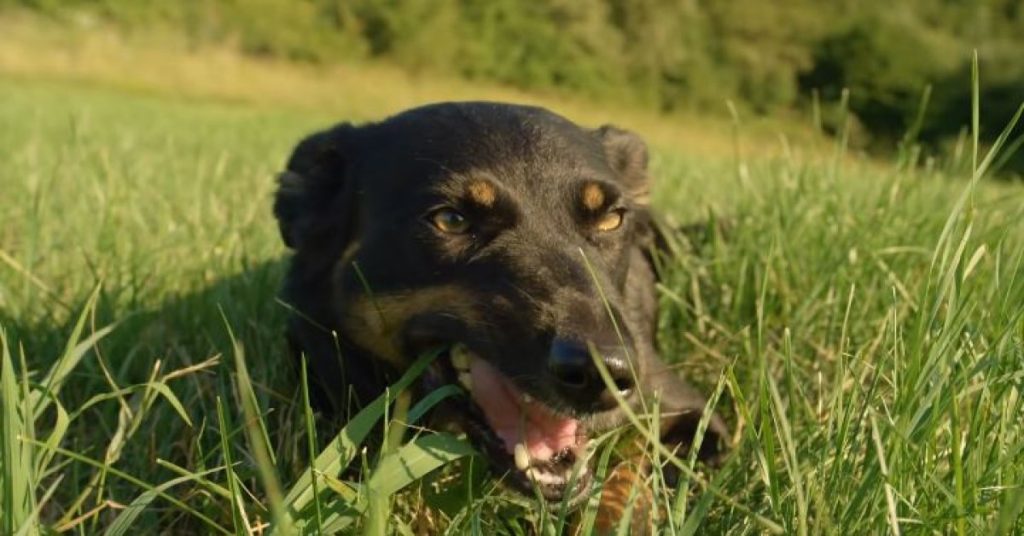
If your dog eats grass, the first step is to observe the frequency and any accompanying symptoms. Occasional grass eating is generally considered normal behavior and may not be a cause for concern. However, if your dog is eating grass frequently or in large amounts, it could indicate an underlying issue such as gastrointestinal distress or a dietary deficiency. If your dog shows signs of illness such as vomiting, diarrhea, weight loss, or changes in appetite or behavior, it’s important to consult with a veterinarian.
Understanding Why Dogs Eat Grass
There are several theories as to why dogs eat grass. Some believe it’s an instinctual behavior inherited from their wild ancestors, who ate grass to purge their systems of parasites. Others suggest that dogs might eat grass to induce vomiting if they’re feeling unwell, although studies have shown that only a small percentage of dogs that eat grass are ill beforehand, and even fewer vomit after eating grass.
Another theory is that dogs eat grass simply because they enjoy it. Grass can provide a form of entertainment or a way to alleviate boredom. It’s also possible that dogs eat grass to supplement their diet with nutrients, like fiber, that they may not be getting enough of in their regular meals.
What to Do If Your Dog Eats Grass
- Monitor the Behavior: If your dog occasionally eats grass and appears healthy otherwise, there’s usually no cause for concern. However, if the grass eating is frequent or obsessive, it’s worth discussing with your vet.
- Check for Pesticides: If your dog is eating grass from public areas or other people’s yards, there’s a risk of ingesting harmful substances like pesticides or herbicides. Try to prevent your dog from eating grass unless you’re sure it’s free from these chemicals.
- Provide a Balanced Diet: If your dog’s grass eating is driven by a dietary deficiency, providing a balanced, high-fiber diet can help. Consult with your vet about the best diet for your dog’s age, breed, and health status.
- Enrichment Activities: If boredom is causing your dog to eat grass, try incorporating more physical exercise and mental stimulation into their routine. This could include more walks, playtime, or puzzle toys.
- Consult a Veterinarian: If your dog’s grass eating is accompanied by signs of illness, or if changes in diet and enrichment don’t reduce the behavior, it’s important to consult a vet. They can rule out any underlying health issues and provide further guidance.
Substitute for Dog Eating Grass

If your dog is frequently eating grass, it may be an indication that they are trying to add more fiber or roughage to their diet. Here are some alternatives you can consider:
- High-Fiber Foods: Incorporating high-fiber foods into your dog’s diet can help. This could include pet-safe vegetables like carrots, green beans, or pumpkin. Always introduce new foods gradually and in moderation to avoid upsetting your dog’s stomach.
- Dog-Formulated Greens: Some pet food companies produce ‘green’ treats or supplements that are safe for dogs and can satisfy their craving for grass. These are typically made from pet-safe plants and can be a good alternative.
- Herbs: Some herbs, like parsley or wheatgrass, can be safe for dogs to consume in small amounts. They can be grown at home and offered to your dog as a grass substitute.
- High-Quality Dog Food: Ensure your dog’s regular food is high-quality and balanced for their nutritional needs. Some dogs may eat grass due to a lack of certain nutrients in their diet.
- Enrichment Activities: If your dog is eating grass out of boredom, providing more mental and physical stimulation can help. This could include more frequent walks, playtime, or puzzle toys.
Always consult with a veterinarian before making significant changes to your dog’s diet or introducing new foods. They can provide guidance based on your dog’s specific needs and health status.
How Long After Eating Grass Will a Dog Vomit?
The act of a dog vomiting after eating grass can vary greatly and is not always guaranteed to occur. According to a study published in the journal “Applied Animal Behaviour Science,” only 22% of dogs showed signs of illness before eating grass, and only 8% of dogs vomited after consuming grass.
If a dog does vomit after eating grass, it can happen almost immediately or within a few hours, depending on the dog’s digestive system and the amount of grass consumed. However, it’s important to note that frequent vomiting, whether associated with grass eating or not, can be a sign of a more serious health issue and should be addressed with a veterinarian.
Final Words
While grass eating is typically a normal behavior in dogs, it’s important for dog owners to monitor this behavior and ensure it’s not indicative of a larger issue. By understanding why dogs eat grass and knowing what steps to take if the behavior becomes problematic, dog owners can ensure their pets stay healthy and happy.
FAQs
Why does my dog eat grass on walks?
One of the primary reasons dogs may eat grass is due to nutritional needs. Dogs are omnivores, meaning they eat both meat and plant-based foods. In the wild, their diet would include a variety of plants and animals. Domestic dogs, however, often have a diet primarily composed of processed dog food, which may not fully meet their nutritional needs.
Should i let my dog eat grass when sick?
While it’s not uncommon for dogs to eat grass, it’s important to understand why they might do so, especially when they’re sick. Dogs may eat grass due to a variety of reasons, including dietary deficiencies, boredom, or because they’re feeling unwell and trying to induce vomiting. If your dog is sick and eating grass, it could be an attempt to soothe an upset stomach or get rid of something that’s causing discomfort.
However, it’s crucial to note that grass isn’t a cure for any illness and can sometimes be harmful if it’s treated with pesticides or fertilizers. If your dog is sick, it’s always best to consult with a veterinarian for professional advice. They can provide appropriate treatment based on the specific symptoms and condition of your dog. Letting your dog eat grass when sick isn’t a substitute for proper veterinary care.
